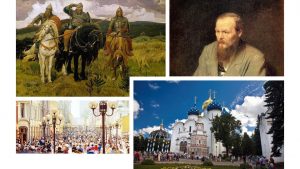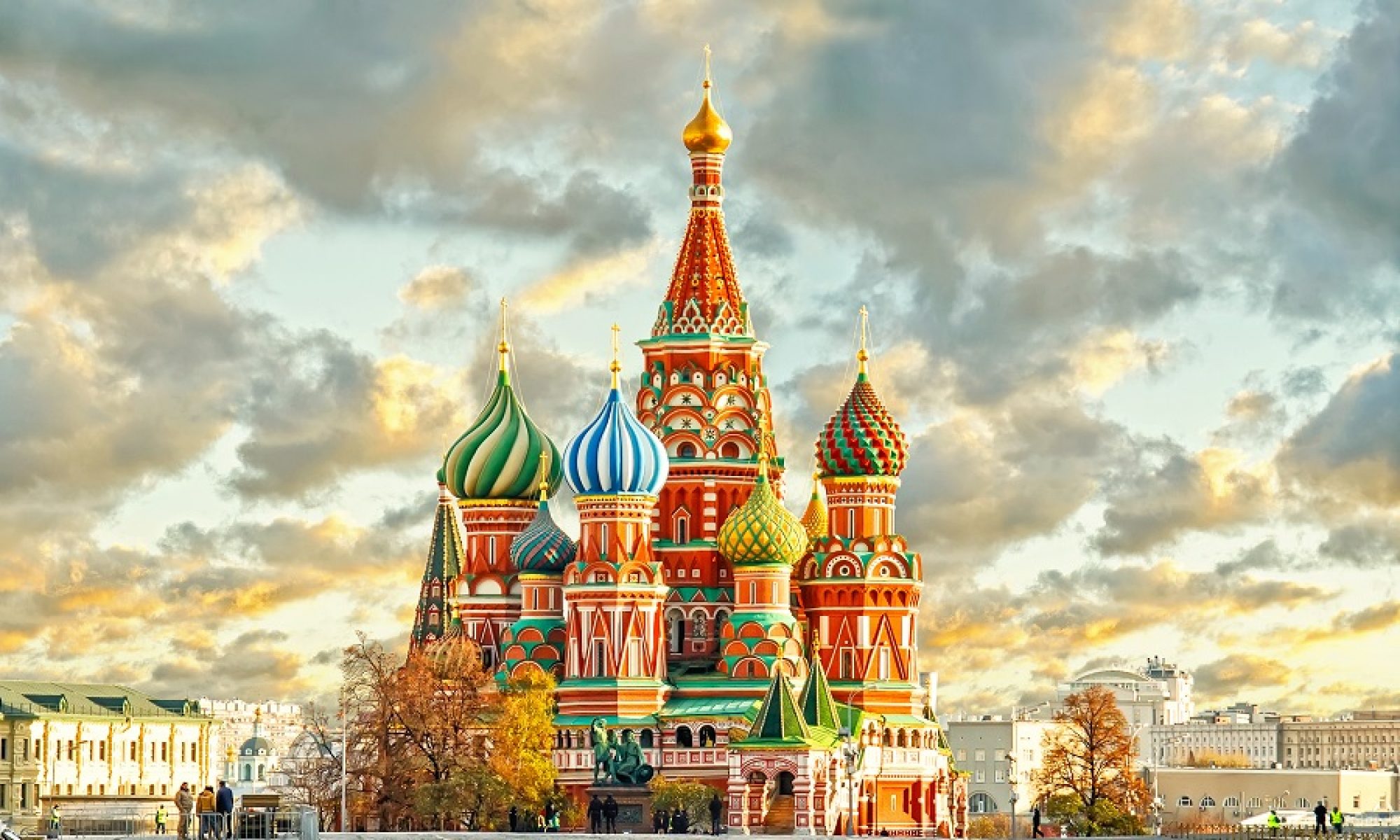COURSE DATES:
May 13, 2024 to Jun 20, 2024

Course Description
This course explores Russian values and assumptions that drive Russian cultures. You will discover Russians’ perspectives on their history and how Russian values manifest in religion, philosophy, fairy tales, and etiquette. Special attention is given to Russians’ attitude to war.
The course includes recorded lectures, online discussions, assigned readings from classical Russian literature, films from celebrated Russian directors, and a research component. The class format is flexible. Students who cannot attend the in-person seminars can participate on Canvas in the discussion section.
Mode of Delivery: multi-access
NO personal attendance is required. Students may participate in the course either in-person or online
Learning Objectives
After successfully completing RUSS 303, you will be able to:
-
-
- Identify and analyze:
-
-
-
- a range of Russian people’s beliefs, values, and conventions;
- factors and events that influenced Russian values;
-
-
-
- describe selections of Russian literature and film in order to analyze how Russian cultural values are depicted;
- question your own cultural preconceptions by discussing the difference between how Russians view their values and Western perspectives of Russia;
- develop cultural sensitivity by reflecting on some peculiarities of Russian culture;
- communicate perceptions of unfamiliar cultural materials to peers.
- Perform research skills, including formulating research questions, using library and Internet resources, and evaluating sources of information.
-
Required Material
All reading material is available online and via the UBC library system
All films are accessible via links or via the YouTube Mosfilm Collection
Evaluation
Evaluation
Discussions 10%
Reflections 10%
Online Quizzes 20%
Research Proposal 10 %
Research Presentation 10%
Research Paper 40%
Discussions (10%)
Discussions promote preparation and provide the students’ feedback. You will participate in discussions in class or, if you cannot attend classes, by posting on Canvas. Both oral and written discussion participation is graded according to a Complete/Incomplete grading scheme. For example, students who participated in a discussion in class or submitted their responses online before the deadline will get 100% for this assignment.
Reflections (10%)
There will be weekly reflections in the form of written assignments designed to facilitate your learning so that you can get insight into at least one of the learning objectives for the course listed above on the syllabus. Written assignments are graded according to a Complete/Incomplete grading scheme. Students who submit written assignments and reflections before their deadlines will get 100% for these assignments.
Online quizzes (20%)
There will be open-book online quizzes after each module on the material from both the reading assignments and the lectures. The quizzes will be 10-15 minutes long, and they will include questions in different formats, including multiple-choice, fill-in-the-blank, and short answers. Details of each quiz will be announced the week before the quiz date. The lowest score will be excluded from the final grade.
Research Proposal (10 %)
You will have to submit a research proposal (minimum 750 words) on the topic of your interest related to Russian culture. You will examine this topic in your final paper and research presentation. You must propose a topic yourself following these guidelines:
- The topic must be related to RUSS 303.
- You must submit the topic by the date indicated in the course schedule for the instructor’s approval.
- Your proposal should include a description of the research topic and an annotated bibliography (minimum 5 sources, consistent with one style, e.g., APA, MLA, Chicago, etc.) In your description, you should introduce a problem or issue relevant to the topic and make a clear and creative argument for the importance of the topic.
- Your annotations should be a minimum of 100 words each and they should include the following information:
- A summary of the source;
- The source’s strengths and weaknesses;
- Why is the source relevant to your field of study;
- Information about the author’s background;
- Your personal conclusions about the source
Research Paper (40 %)
Your research paper should be on the topic of your research proposal described in the previous sections. In this paper, you should analyze both literary and non-literary works to address topics related to the beliefs and values of the Russian people. Your paper should follow the following requirements:
- The format is 10-12 pages (2500 words) not including your bibliography, double-spaced, 12-point fonts
- Minimum 12 sources (primarily literary and scholarly)
- The formal is MLS
Required reading
Dostoevsky, F.M. Notes from Underground. Part 1 (available at https://www.planetebook.com/free-ebooks/notes-from-the-underground.pdf)
Dostoevsky, F.M. McDuff D. The Brothers Karamazov. “The Grand Inquisitor.” (posted on Canvas)
Dovlatov, S. (1989). My First Cousin. In Ours: A Russian family album (1st ed.). New York: Weidenfeld & Nicolson. (posted on Canvas)
Pushkin, A.S., The Captain’s Daughter.
Sholokhov, M. A., & Waddington, P. (1964). Sudʹba cheloveka: Destiny of a man. London: Collet’s Publishers.(posted on Canvas)
Recommended films (available on YouTube)
Menshov, V. (1980). Moscow does not Believe in Tears. Mosfilm.
Recommended reading
Tolstoy, Leo, graf, 1828-1910. (1904). My confession; critique of dogmatic theology available at UBC
